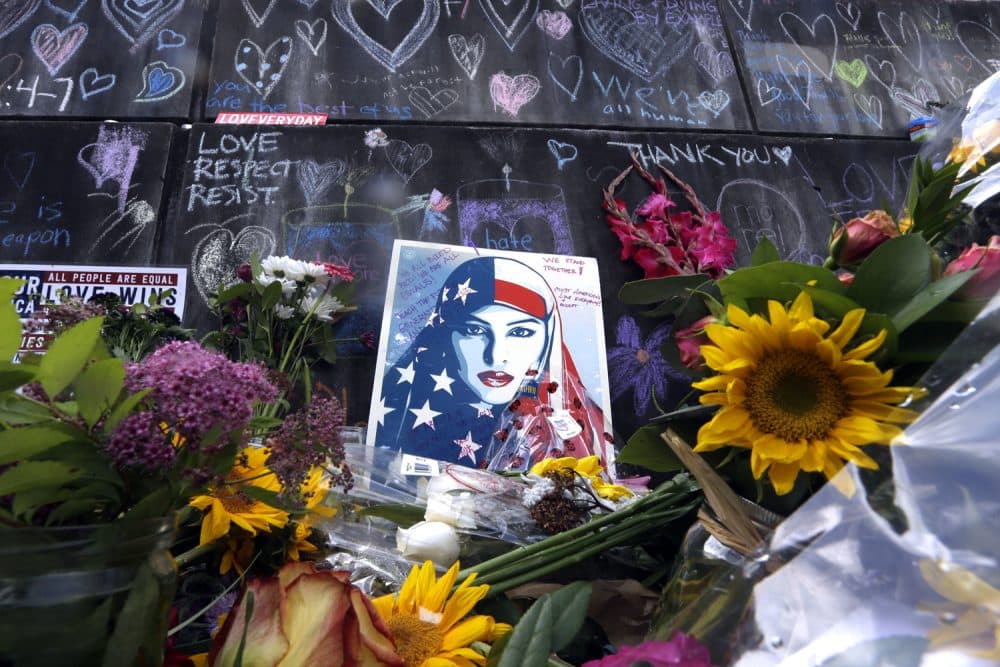Advertisement
How To (Safely) Stand Up Against Hate

The stabbing deaths of two men in Oregon, who tried to stand up against a man yelling hateful remarks to passengers on a train, have many wondering: is it safe to be an active bystander? The two men, Ricky John Best and Taliesin Myrddin Namkai Meche, are being hailed as heroes. But is standing up against hate worth risking your life?
Today on our show, we spoke with law professor Jeannine Bell and ACLU Oregon Legal Director Mat dos Santos. Our guest host, Sacha Pfeiffer, posed a simple question: Can you talk about what bystanders are supposed to do? She cited the following tweet as an example of doubtful bystanders in the wake of the Oregon stabbings:
Here are highlights from the conversation, lightly edited.
Guest Host Sacha Pfeiffer: Jeannine Bell, do you have advice for listeners who might witness something and not be sure what to do?
Jeannine Bell: Yes. You should absolutely try to contact the authorities in any way possible. If, for instance, on a train there is some sort of way to contact the conductor to describe an incident, to say that an individual is being threatened, those may be violations of the law, and individuals should absolutely alert someone in authority.
Guest Host Sacha Pfeiffer: What if there's no law enforcement around or you're afraid that the delay could end up being fatal for the person being targeted?
Jeannine Bell: I'd encourage them to interact with others around them, meaning gather a crowd. Start condemning it as a group. If the individual on the train had faced lots of people, then there might have been a different sort of outcome in that particular case. I don't think an individual should have to go into it alone.
Guest Host Sacha Pfeiffer: Mat dos Santos, there's an interesting story in the Boston Globe today about what bystanders could do, and it says one of the tactics is, pretend you know the person being targeted or victimized, just approach them and casually begin to talk to them, become a buffer of sorts between them and the person targeting them. What do you think about that kind of approach?
Mat dos Santos: "I have to say, I am not a law enforcement authority and I don't have a lot of experience in that kind of engagement and diffusion. I do think that it is worth saying that when we train our legal observers, we train them to keep themselves safe, to travel in pairs, to pair off, and to be in constant communication with each other. But I like that idea. The idea is that you're personalizing someone, and I think that it is much harder for a human being at a human level to engage in hateful rhetoric or violence against another person. Part of what's happening in the country right now is this profound 'othering' of marginalized communities. I think that's what's leading to this sort of ability to segregate in our minds who are people deserving of rights and respect, and who aren't. And so I like the idea, it's a good one.
Readers, thoughts? Tips?